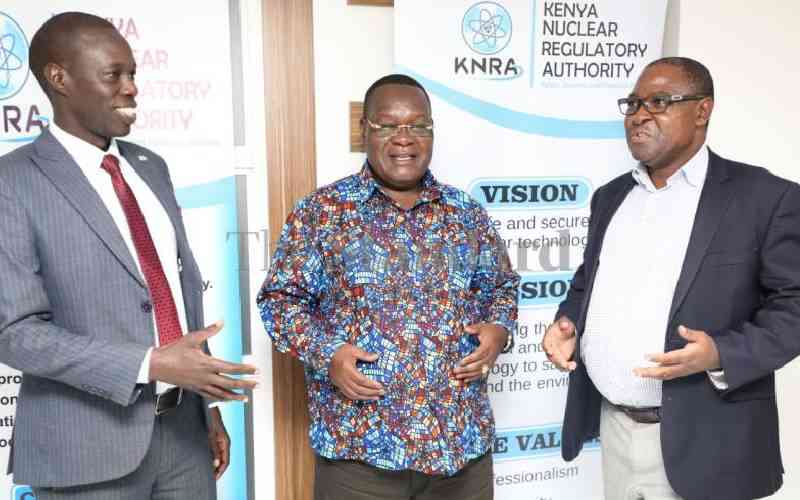×
The Standard e-Paper
Join Thousands Daily

The government says it will ensure high safety standards in the application of nuclear energy and other crucial sectors of the economy.
Kenya Nuclear Regulatory Authority (KNRA) Board Chairman Omondi Anyanga said they will pursue partnerships in radiation and nuclear safety and learn from best global practices.